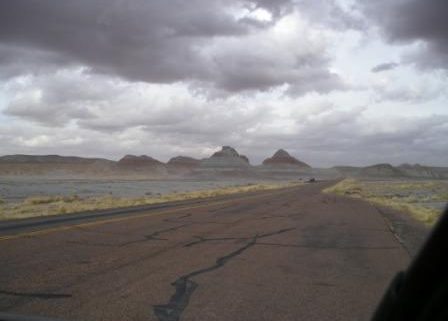Jurisdiction: Who Can Go Where, When?
Jurisdictional issues come up all the time for police officers. Criminals are extremely mobile, and unfortunately for local cops, they simply don’t stay put waiting for detectives to come and get them.
Jurisdiction (according to Blacks Law Dictionary) is a geographic area in which a court has power or types of cases it has power to hear. For law enforcement officers, that jurisdictional boundary covers the area where they are sworn to protect and serve as police officers.
City officers are sworn (raise their right hand and repeat an oath to protect, serve, and enforce all laws) to protect and enforce the laws of the city where they’re employed. County officers are sworn to protect and enforce the laws of the counties where they’re employed. State officers are sworn to enforce laws in their state, and federal officers are sworn to enforce laws throughout the country.
In most cases, police officers aren’t allowed to conduct an arrest in any area that’s outside their jurisdiction. In fact, some arrests conducted outside an officer’s jurisdiction are considered illegal.
Unfortunately, bad guys aren’t held to such standards. Why, they’ve even been known to kill somebody in Florida and flee all the way to Washington state. The nerve of those guys. They just don’t abide by the rules. When bad guys do flee the scene of a crime, officers issue warrants for their arrest, and they issue a BOLO (Be On The Lookout). Now, when the crooks are spotted in Washington state, the Northwestern cops can make a legal arrest based on the information they’ve received from the authorities in Florida.
There are exceptions to the jurisdictional restrictions for police officers. When can they go outside their home territory to apprehend a criminal?
1) During a hot pursuit. Officers can legally pursue a fleeing felon across jurisdictional boundaries as long as they maintain visual contact with the suspect. However, if the officer ever loses sight of the suspect the pursuit is no longer considered fresh, and must terminate the chase (There are always exceptions. Remember, we’re talking about the law).

2) An officer can make a legal arrest outside his jurisdiction if she was responding to a request for assistance from another agency.
3) In some areas, as long as an officer has possession of a legal arrest warrant, she can serve it on the suspect anywhere in her state. (again, check local laws).
4) Many jurisdictions have a specified allowance of distance their officers may travel to make an arrest. This provision in the law is because there is no physical line drawn on the ground to determine the actual city limits. Officers acting in good faith may make an arrest within these provisional boundaries.

However, in Limestone County, Alabama, this law is in effect:
In Limestone, no police jurisdiction of a municipality located wholly or partially within Limestone county shall extend beyond the corporate limits of the municipality. (Amendment 499; Proposed by Act 88-306, submitted at the Nov. 8, 1988, election, and proclaimed ratified Nov. 23, 1988, Proclamation Register No. 6, p. 56).
5) Officers can make a citizens arrest anywhere in the country, just like any other person in the same situation.
6) Interestingly, Ohio state patrol officers have no jurisdiction on private property. Their arrest powers cover only roadway patrol and public land. (Please correct me if I’m wrong, Lt. Swords).
And, I feel compelled to answer the question I see asked almost every single day. Here goes:
NO, the FBI does not ride into town and take over cases from local police departments. They have other things to do.
Besides, as a rule, the FBI doesn’t work murder cases. Local police departments, sheriffs offices, and state police are more than capable of handling their own cases. And they do.





Hi Marjorie. Thanks for stopping by. Sure, the officers could travel to another jurisdiction to question a suspect. In fact, it’s done all the time. Actually, they’d probably conduct the interview since they have all the facts and know the players. But it’s always a good idea (it’s also common courtesy) to notify the local department when you’re in their jurisdiction. Besides, they know the locals and the area, and you’d need them to serve a warrant, if necessary. A visiting officer doesn’t have that authority.
Lee, I’m hoping for an answer regarding inter-jurisdictional collaboration.
The premise: A murder takes place within the jurisdiction of a small-town Minnesota police force. They have no detectives. Their prime suspects reside two hours away in Minneapolis.
Question: Could the town’s Chief of Police, have one of his officers go to Minneapolis to work with a local homicide detective during the interviewing/investigation process?
Thanks for whatever information you can give me.
TJ – Sure, campus police officers can travel to someone’s home to question them, and they can conduct their investigations wherever evidence leads them. It’s the actual arrest of someone outside their jurisdiction that normally requires the assistance of a local officer who does have powers of arrest in that particular area. Still, visiting officers often notify local agencies whenever they’re in the area on business. It’s the polite thing to do, and it’s the safe thing to do.
So in reading the above, a campus police officer/investigator (1 of 3) in this case, can or can not visit the home of an alleged offender for questioning or serviving a warrant if the alleged offender did not go to her office when she (the officer) called and threatened her? In the county in which my daughter lives there is NO campus it is over an hour away. Can campus police investigate an alleged crime outside of campus or is that when they seek the local PD or Sherriff office? Than you.
My question is can law officials ever have jurisdiction over a foreign country or not at all?
Elena – I’m sure it varies from state to state. Virginia, for example, has Capitol Police who provide protection for state buildings, and state government officials. The museums even have a separate police department. The state forensics lab has its own police officers, etc.
Lee – the way I was told it works out is that as soon as they see the need to move beyond the main campus they call the city police. They work together allowing the campus police to go back to the campus. However, the campus actually is all over the place, even outside the city, so the campus police have been granted this unusual arrangement to allow for the greatest flexibility without a lot of fanfare.
Aren’t the guys and gals assigned to protect state buildings state police also? That was my impression. I could be wrong – it’s been known to happen 🙂
How’s your back and neck and stuff?
Elena – It’s unusual, odd actually, that campus police have actual jurisdiction (powers of arrest) throughout an entire city. Who patrols the campus when they’re out riding around town? Normally, they’re limited to campus property. By the way, all campus police officers (not campus security) are certified law enforcement officers. If not, they couldn’t make arrests. They receive the same training as any other police officer. Sometimes, they do ask that city or county officers work their larger cases, such as homicide because they just don’t have the manpower or the resources to do so.
Officers can normally pick up a suspect anywhere in their home state if they have a warrant. But, what cops normally do to avoid jurisdictional issues is stop by the local PD or sheriff’s office and have a local officer accompany them to make the arrest. The state police are rarely ever involved in these situations. Could be, but aren’t (But, it has been done before, and will again). State police normally stick to patrolling highways. They do have criminal divisions, but they’re not usually utilized for serving local arrest warrants.
Here, I’ve been told, we have overlapping jurisdictions – the city police are welcome on campus, and the university police actually can work all over the city. The university police are fully trained LEO’s, and bits and pieces of the campus are scattered all over the place.
Plus there are incorporated towns that are adjacent and/or wholly surrounded by the city – again, by law, all the contiguous jurisdictions to the “city” can go everywhere.
What I didn’t have time to ask is -if a local cop is accompanied by a state cop, can she pick up somebody outside her legal jurisdiction? It would seem that is a possibility from what you say in your posting.
Pulled out the big guns this morning, huh!
Lee,
Mayberry, R.F.D. and Reno 911 in the same post.
Cooooool.
Linda